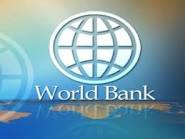 The World Bank Group has said African countries would grow at 3.7 per cent rate this year, a margin lower than the 4.6 per cent recorded last year.
The World Bank Group has said African countries would grow at 3.7 per cent rate this year, a margin lower than the 4.6 per cent recorded last year.
It said the growth rate is the lowest recorded for the continent since 2009, stating that the development is induced by “more challenging economic environment”.
The report is contained in Africa’s Pulse, the bi-yearly publication of the World Bank, titled – the Challenge of Sustaining Growth amid Weak Global Conditions.
The 2015 forecast remains below the robust 6.5 per cent growth in GDP, which the region sustained in 2003-2008.
It said the decline in the growth rate to below the 4.5 per cent in the accompanying years from 2009 through last year, was the result of the global financial crisis within the era, but nevertheless expressed optimism that growth in the region is projected to pick up to 4.4 percent next year, and further strengthen to 4.8 per cent in 2017.
World Bank Vice President for Africa, Makhtar Diop, has, however, urged African nations not to bemoan the challenges posed by the end of the commodity super-cycle.
He said they should latch on the opportunities created by the development by reinvigorating reform efforts to transform their economies and diversify sources of growth.
He said: “Implementing the right policies to boost agricultural productivity, and reduce electricity costs while expanding access, will improve competitiveness and support the growth of light manufacturing.”
The report indicated that several countries continue to post robust growth. It added that several countries, including Ethiopia, Mozambique, Rwanda and Tanzania are expected to sustain growth at around seven percent or more per year between this year and 2017, spurred by investments in energy and transport, consumer spending and investment in the natural resources sector.
It said considerable progress is being recorded in reducing income poverty in sub-Saharan Africa at a faster rate than previously thought.
The World Bank estimates that poverty in Africa declined from 56 per cent in 1990 to 43 per cent in 2012.
Acting Chief Economist, World Bank Africa and the report’s author, Punam Chuhan-Pole, said: “The dramatic, ongoing drop in commodity prices has put pressure on rising fiscal deficits, adding to the challenge in countries with depleted policy buffers.”
He said to withstand new shocks, governments in the region should improve the efficiency of public expenditures, such as prioritising key investments, and strengthening tax administration to create fiscal space in budgets.
The report said growth in sub-Saharan Africa will be repeatedly tested as new shocks occur in the global economic environment, underscoring the need for governments to embark on structural reforms to alleviate domestic impediments to growth.
It said investments in new energy capacity, attention to drought and its effects on hydropower, reform of state-owned distribution companies, and renewed focus on encouraging private investment will help build resilience in the power sector.
END

Be the first to comment